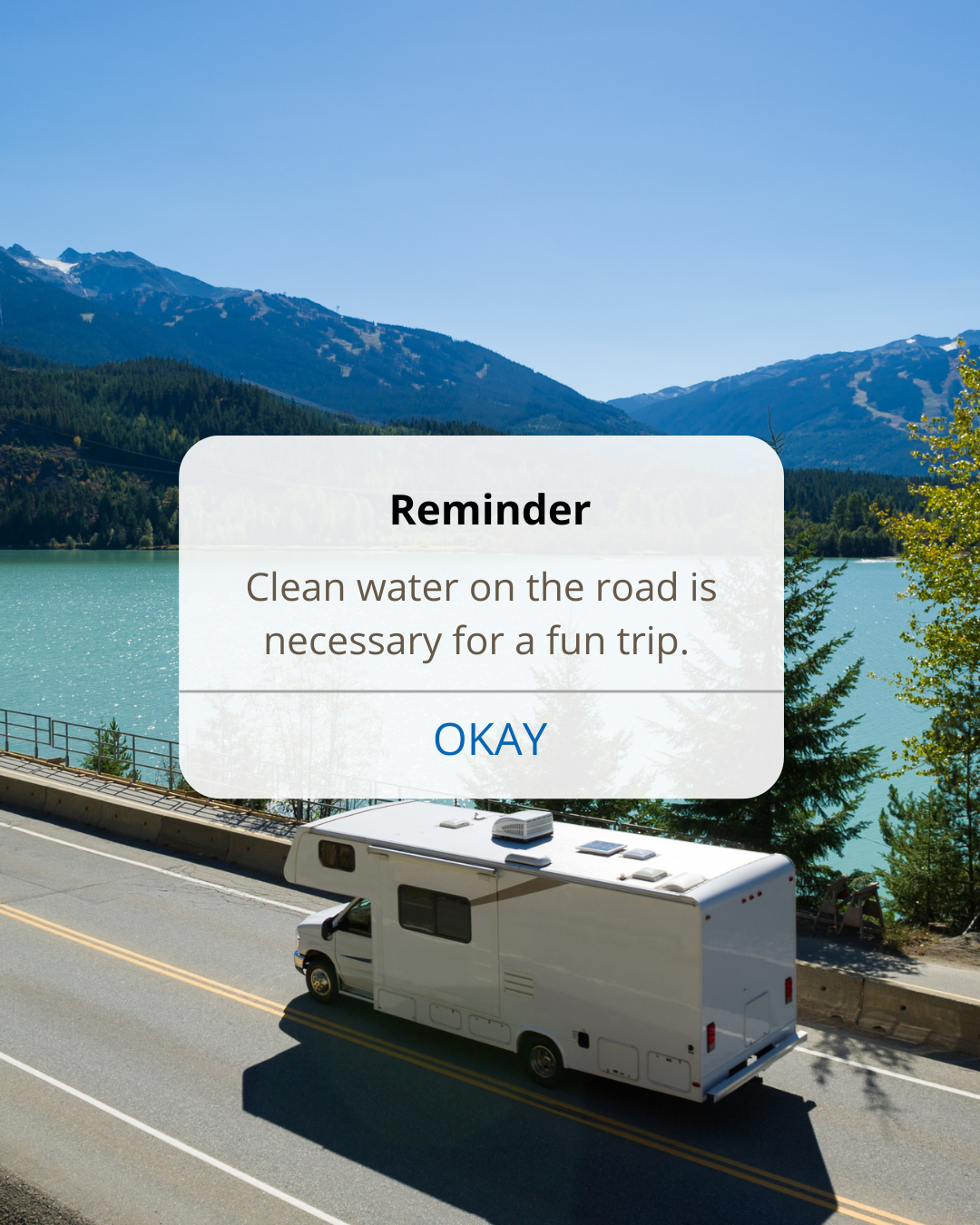How to Have Clean Drinking Water on a Trip
No matter where you go, exposure to clean drinking water is necessary for health. You may be taking a road trip, a plane trip, or a trip to another country, and water contamination could ruin your experience.
It's easier to make sure you're consuming clean water while at home. Leaving your normal surroundings can cause disruptions in your health.

Water Contamination Possibilities on a Trip
On a road trip, there are certain circumstances that could cause water contamination. Perhaps you’re passing through a town that has a boil water advisory and you’re unaware of it.
But there are other circumstances you might encounter that can lead to sickness from water contamination.
Use Caution While Swimming
You may want to avoid swimming or wading in lakes or rivers after heavy rainfall. In fact, some freshwater canals, streams, and lakes can be contaminated without you knowing. The same is true for warm seawater.
Wading or swimming in these sources, even if you’re not drinking the water, can make you sick. An open wound, cut, or any break in the skin can allow germs or contaminants into your body.
Some water sources are also contaminated due to wastewater runoff. If the area isn’t known to you, you might be mixing in water with human or animal feces or urine.
Another concern is swimming pools. If you're staying in a hotel that includes a pool, they tend to have large amounts of chlorine. If you must swim in them, make sure you shower afterward to wash off all of the chlorine.
Remember that long periods in an indoor public swimming pool can do damage in other ways. Breathing in chlorine can also make you feel sick, so make sure you limit the time you’re in these areas.
Traveling to Foreign Countries
Many people experience sickness when they’re in a foreign country. This is often because of water contamination.
Even though American-treated water isn’t perfect, and is oftentimes unhealthy, some other countries have less-treated water supplies. Drinking these sources can leave you sick and unable to enjoy your travels.
How To Avoid Water Contamination on a Trip
It may seem impossible to avoid water contamination on the road, but there are several things you can do to ensure you’re consuming the healthiest water possible.
First, do a little research beforehand. Look for news stories about water contamination in the areas where you’re traveling.
Don't plan on swimming in unknown natural water sources. Or if you’re planning to stay at a lake, check with your amenities to make sure it’s safe for swimming.
If on a road trip, whether in an RV, camper, or just an automobile, pack your Berkey to take along.
Berkey systems are easy to disassemble and the filters can be easily stored. Protect all the parts in a safe reusable bag and when you reach your destination, you’ll have clean water to drink.
Another great Berkey product for a trip is the Sport Berkey. It’s small, easy to carry, and can be used to filter any water source. It’s perfect for hiking trips, camping, or at amusement parks where you don’t want to buy multiple drinks in a day.
Finally, if traveling to another country, find out what their water system is like. Do you need to take a Sport Berkey with you? Are there certain places you should avoid?
Clean Drinking Water on Trips
Making a few preparations in advance can help you have a much more enjoyable and safer trip. The last thing you want is to become sick on a trip you’ve just spent thousands of dollars to take.
Worse still, what if the contamination causes a long-term health problem? None of us anticipate that a getaway will disrupt our lives in a negative way long-term.
Remember that clean water is necessary for health and happiness, wherever you go.
← Older Post Newer Post →


















